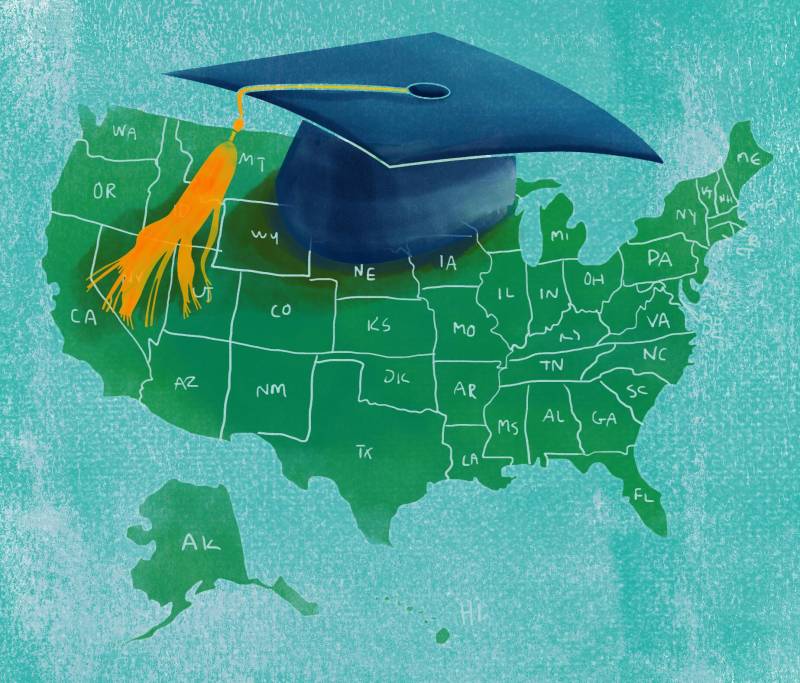Future Innovators Scholarship: How E-Waste Recycling Can Transform Rural Communities
Addressing the Growing Issue of E-Waste I come from a small rural town where access to technology and awareness of e-waste management are limited. As a result, electronic recycling processes are nearly nonexistent, and outdated technology is often discarded improperly. Without structured disposal methods, harmful waste builds up in landfills, contributing to environmental pollution and wasted resources. The rise of digital learning and rapidly evolving technology means that communities like mine need a sustainable approach to handling old electronics before it becomes a major issue. A proactive, community-driven initiative could bridge the digital divide, educate people on e-waste disposal, and repurpose technology for those who need it most. A Community-Based E-Waste Recycling Solution A structured e-recycling program could be implemented through existing public spaces, such as libraries or schools, to collect, clean, and redistribute functional electronics. Volunteers could assist in sorting and refurbishing devices, ensuring that technology remains useful for those who need it. For unclaimed devices, we could partner with organizations like TechWaste Recycling to properly dispose of them. This approach would help prevent: ✅Unnecessary landfill waste from discarded electronics ✅Toxic environmental contamination from improper disposal ✅Wasted opportunities to repurpose working technology for students and low-income families Barriers to E-Waste Recycling & How We Overcome Them One of the biggest reasons e-waste is improperly discarded is inconvenience. People often don’t know where or how to recycle their electronics, leading them to either store unused technology indefinitely or throw it out improperly. Additionally, digital security poses another challenge. Many individuals, particularly in rural areas, are unaware of the risks of discarding devices with intact hard drives. A lack of understanding about digital footprints could leave sensitive personal information vulnerable to identity theft or data breaches. A well-structured program could: ✅ Educate the community on secure e-waste disposal ✅ Provide data-cleansing resources to prevent security risks ✅ Create an accessible drop-off system to make recycling easier By offering clear disposal guidelines and digital security workshops, we can reduce hesitation in recycling electronics while increasing community engagement. Impact on Education & Digital Equity Beyond environmental benefits, this initiative would address a key issue: accessibility to technology. Students in rural and low-income communities often struggle with digital learning due to a lack of personal computers or tablets. As technology becomes increasingly essential in education, many students fall behind simply because they lack the resources to complete assignments or engage in online learning. By redistributing refurbished technology, we could: ✅ Give students access to necessary digital tools ✅ Reduce financial barriers for families in need ✅ Normalize tech-sharing and sustainability The Role of Volunteers & Skill Development A program like this doesn’t just benefit the environment—it could also empower community members by providing hands-on experience with technology repairs, data security, and logistics management. Volunteers—especially students—could gain:

Addressing the Growing Issue of E-Waste
I come from a small rural town where access to technology and awareness of e-waste management are limited. As a result, electronic recycling processes are nearly nonexistent, and outdated technology is often discarded improperly. Without structured disposal methods, harmful waste builds up in landfills, contributing to environmental pollution and wasted resources.
The rise of digital learning and rapidly evolving technology means that communities like mine need a sustainable approach to handling old electronics before it becomes a major issue. A proactive, community-driven initiative could bridge the digital divide, educate people on e-waste disposal, and repurpose technology for those who need it most.
A Community-Based E-Waste Recycling Solution
A structured e-recycling program could be implemented through existing public spaces, such as libraries or schools, to collect, clean, and redistribute functional electronics. Volunteers could assist in sorting and refurbishing devices, ensuring that technology remains useful for those who need it.
For unclaimed devices, we could partner with organizations like TechWaste Recycling to properly dispose of them. This approach would help prevent:
✅Unnecessary landfill waste from discarded electronics
✅Toxic environmental contamination from improper disposal
✅Wasted opportunities to repurpose working technology for students and low-income families
Barriers to E-Waste Recycling & How We Overcome Them
One of the biggest reasons e-waste is improperly discarded is inconvenience. People often don’t know where or how to recycle their electronics, leading them to either store unused technology indefinitely or throw it out improperly.
Additionally, digital security poses another challenge. Many individuals, particularly in rural areas, are unaware of the risks of discarding devices with intact hard drives. A lack of understanding about digital footprints could leave sensitive personal information vulnerable to identity theft or data breaches.
A well-structured program could:
✅ Educate the community on secure e-waste disposal
✅ Provide data-cleansing resources to prevent security risks
✅ Create an accessible drop-off system to make recycling easier
By offering clear disposal guidelines and digital security workshops, we can reduce hesitation in recycling electronics while increasing community engagement.
Impact on Education & Digital Equity
Beyond environmental benefits, this initiative would address a key issue: accessibility to technology.
Students in rural and low-income communities often struggle with digital learning due to a lack of personal computers or tablets. As technology becomes increasingly essential in education, many students fall behind simply because they lack the resources to complete assignments or engage in online learning.
By redistributing refurbished technology, we could:
✅ Give students access to necessary digital tools
✅ Reduce financial barriers for families in need
✅ Normalize tech-sharing and sustainability
The Role of Volunteers & Skill Development
A program like this doesn’t just benefit the environment—it could also empower community members by providing hands-on experience with technology repairs, data security, and logistics management.
Volunteers—especially students—could gain:










































































